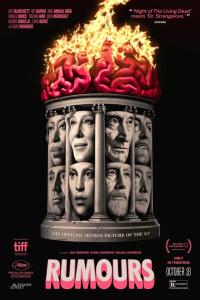Torrent details for "Shaikh T. Machine Learning and Artificial Intelligence in Healthcare Sys. 2023 [andryold1]" Log in to bookmark
Controls:
External index by SiteBot Verified
Category:
Language:
 English
EnglishTotal Size:
31.84 MB
Info Hash:
8126379cf5be164cd3e6effbc5cda9186bc40fbd
Added By:
Added:
01-01-2023 22:20
Views:
120
Health:

Seeds:
2
Leechers:
0
Completed:
95
Textbook in PDF formatExternally indexed torrent If you are the original uploader, contact staff to have it moved to your account
This book provides applications of machine learning in healthcare systems and seeks to close the gap between engineering and medicine by combining design and problem-solving skills of engineering with health sciences to advance healthcare treatment.
Machine Learning and Artificial Intelligence in Healthcare Systems: Tools and Techniques discusses AI-based smart paradigms for reliable prediction of infectious disease dynamics which can help or prevent disease transmission. It highlights the different aspects of using extended reality for diverse healthcare applications and aggregates the current state of research. The book offers intelligent models of the smart recommender system for personal well-being services and computer-aided drug discovery and design methods. Case studies illustrating the business processes that underline the use of big data and health analytics to improve healthcare delivery are center stage. Innovative techniques used for extracting user social behavior known as sentiment analysis for healthcare-related purposes round out the diverse array of topics this reference book covers.
The concept of smart healthcare refers to an intelligent infrastructure that gathers and transmits data via the Internet of Things. It may also organize and integrate social systems into broader societal frameworks. Smart healthcare is a service system that links individuals and organizations to healthcare via the use of technology like the Internet of Things (IoT) and wearable devices. Hospitals, physicians, and research institutions are all part of smart healthcare, which is a higher level of information architecture that includes various players. Smart healthcare relies heavily on information technology such as the Internet of Things (IoT), mobile Internet, and 5G. They play a critical role in healthcare transformation by allowing people to track their health and provide improved medical care. By utilizing these technologies, patients can benefit from better efficiency and lower costs. Mixed reality technology and surgical robots have the potential to improve surgical accuracy. Artificial Intelligence and other cutting-edge technology have made it possible to diagnose and cure a wide spectrum of illnesses. AI-based tools are more accurate than human doctors in detecting illness and imaging defects. Watson, IBM’s cognitive system, for example, can evaluate all clinical data in real-time.
Contributions from experts in the field, this book is useful to healthcare professionals, researchers, and students of industrial engineering, systems engineering, biomedical, computer science, electronics, and communications engineering















































